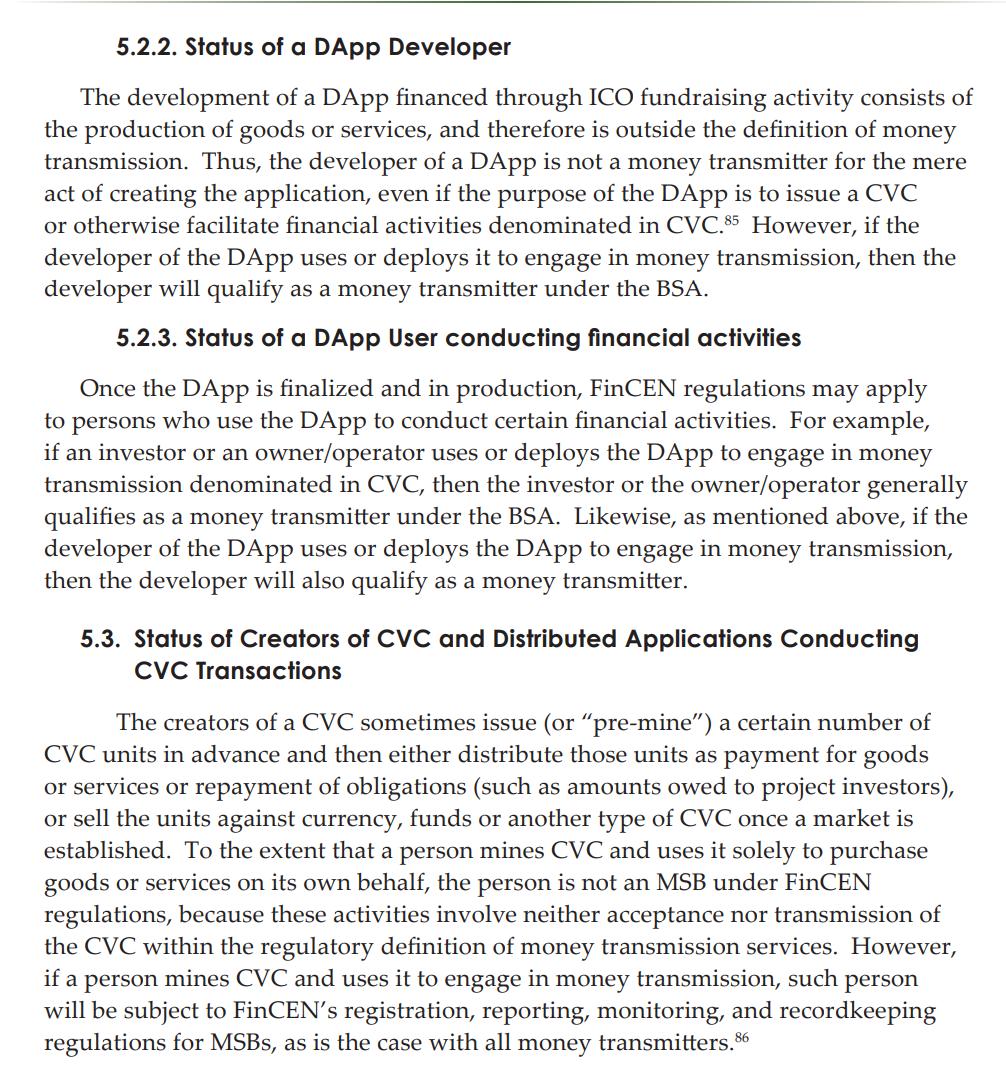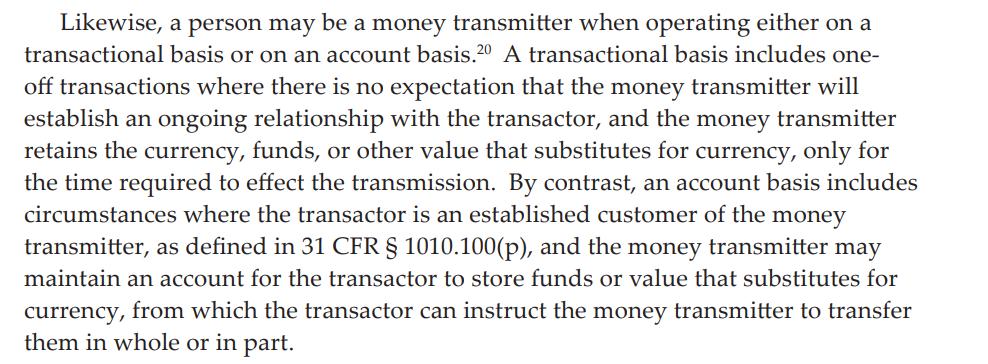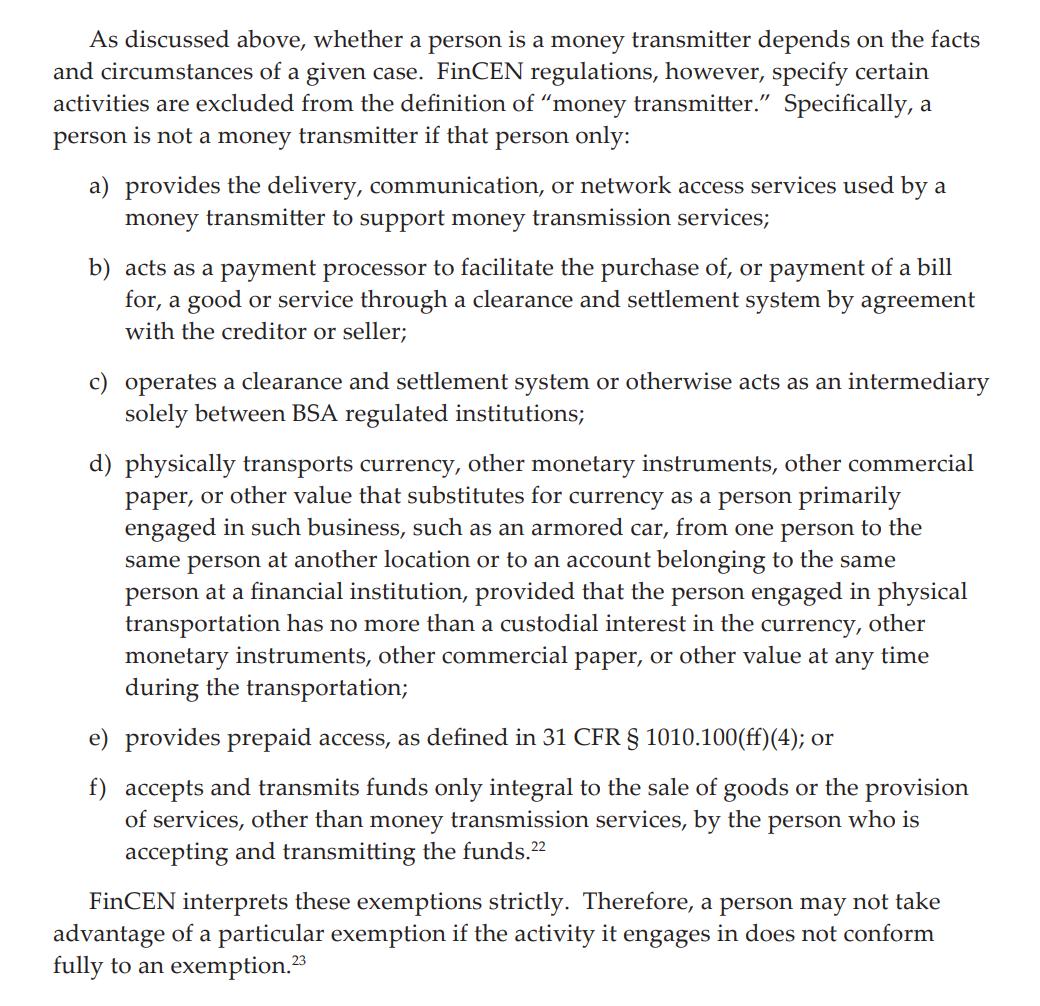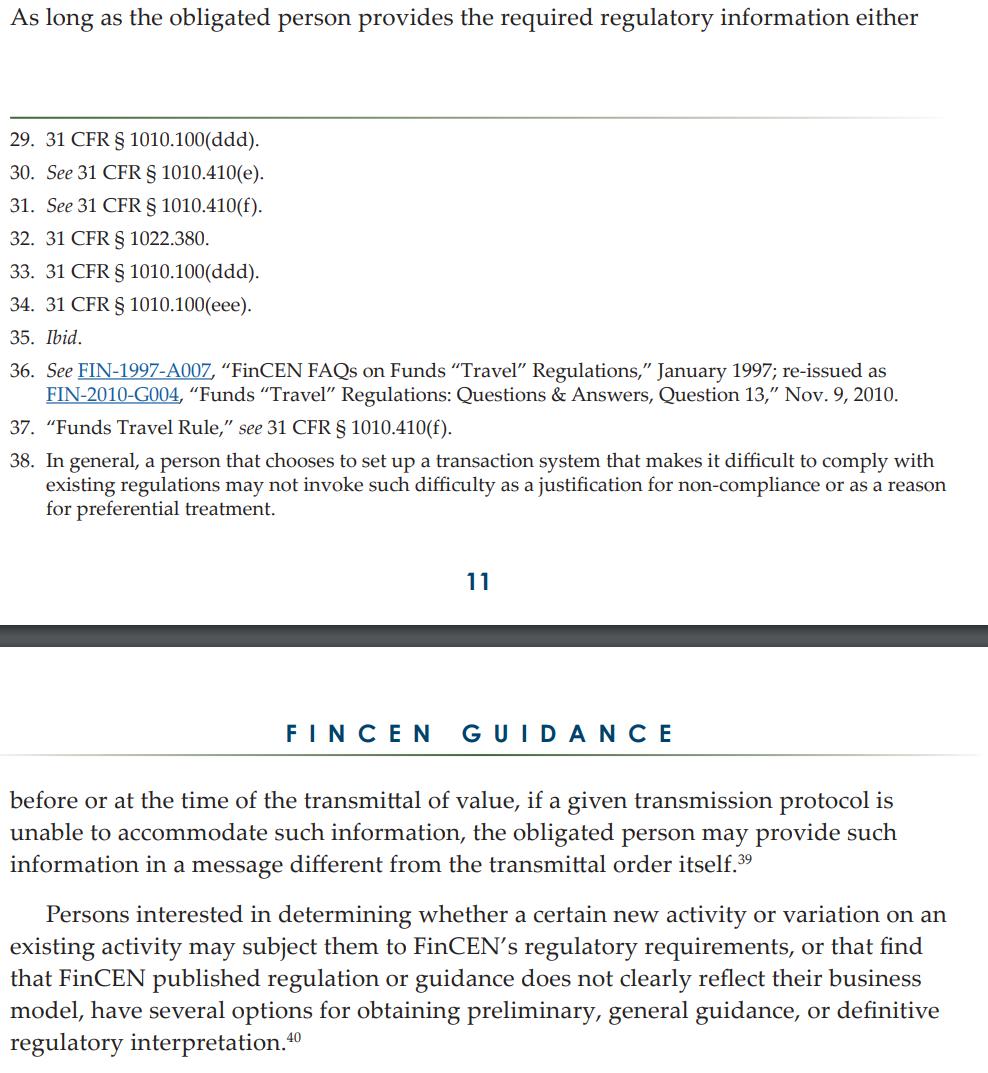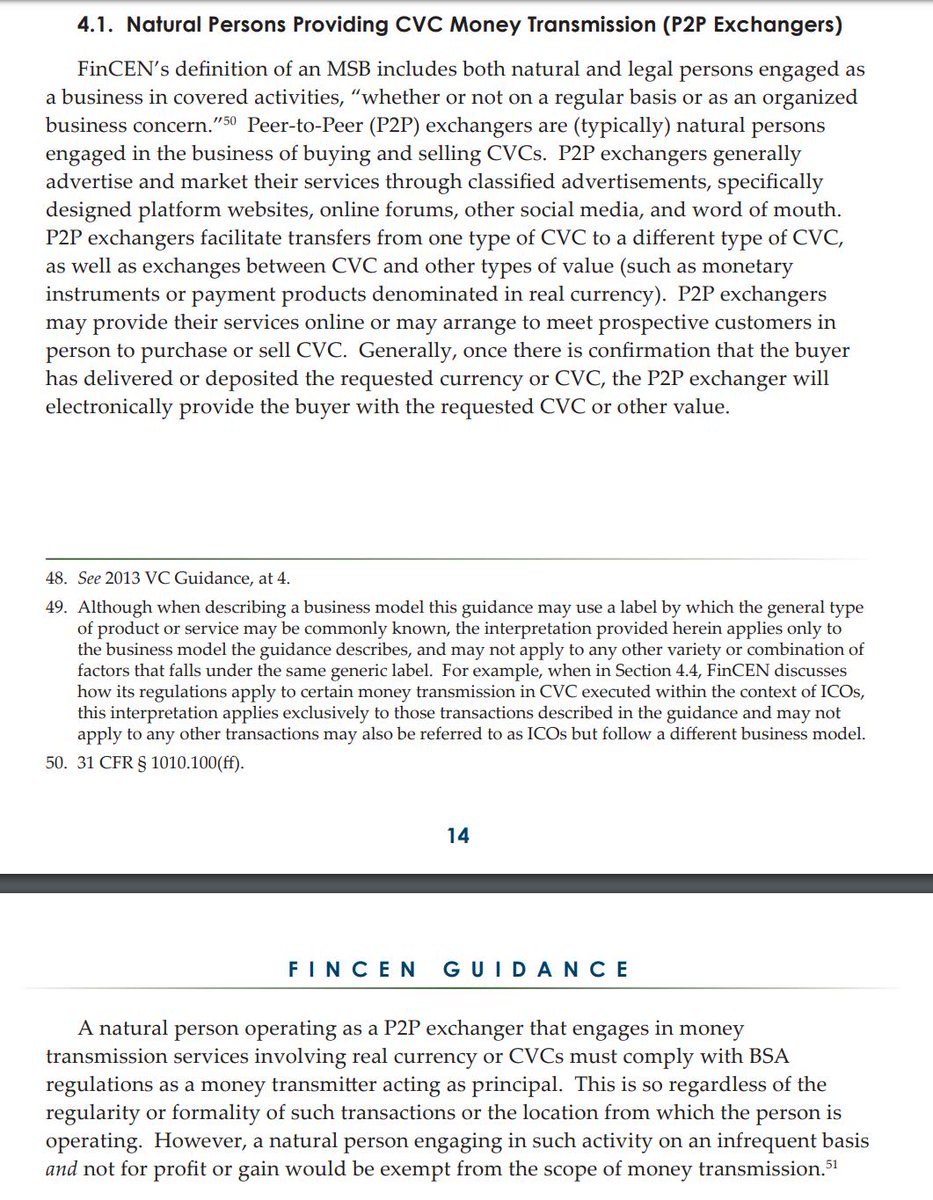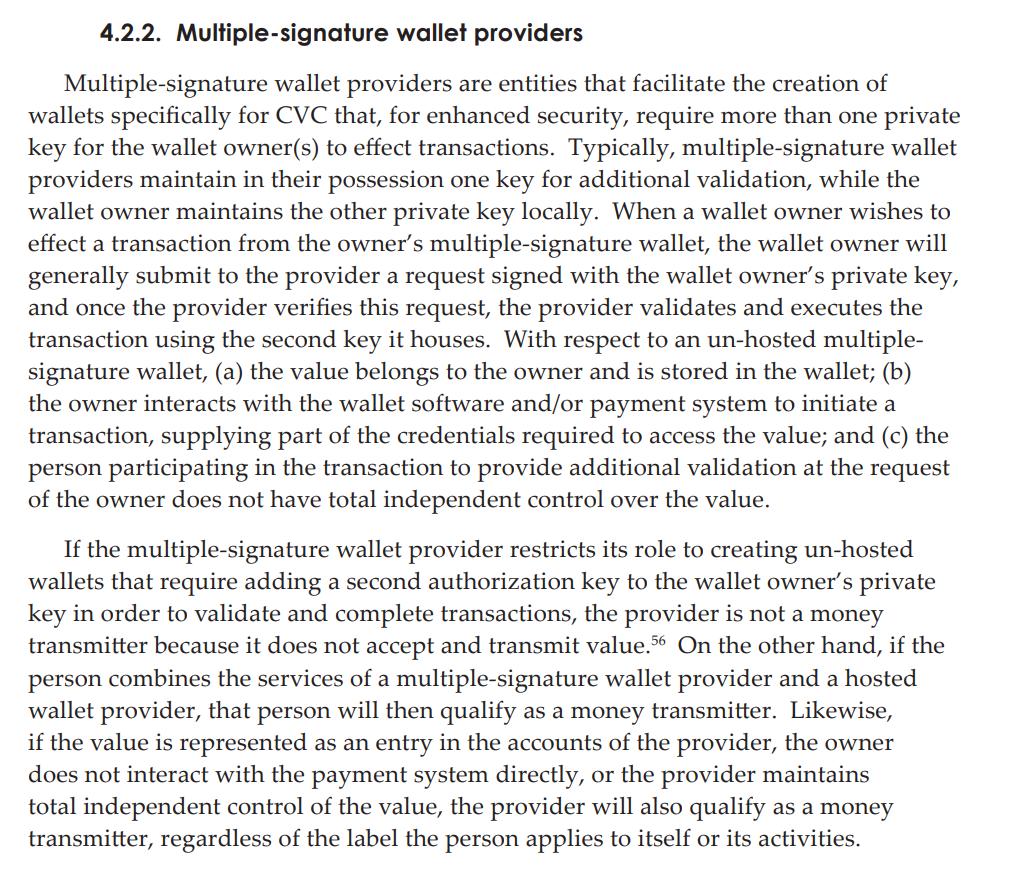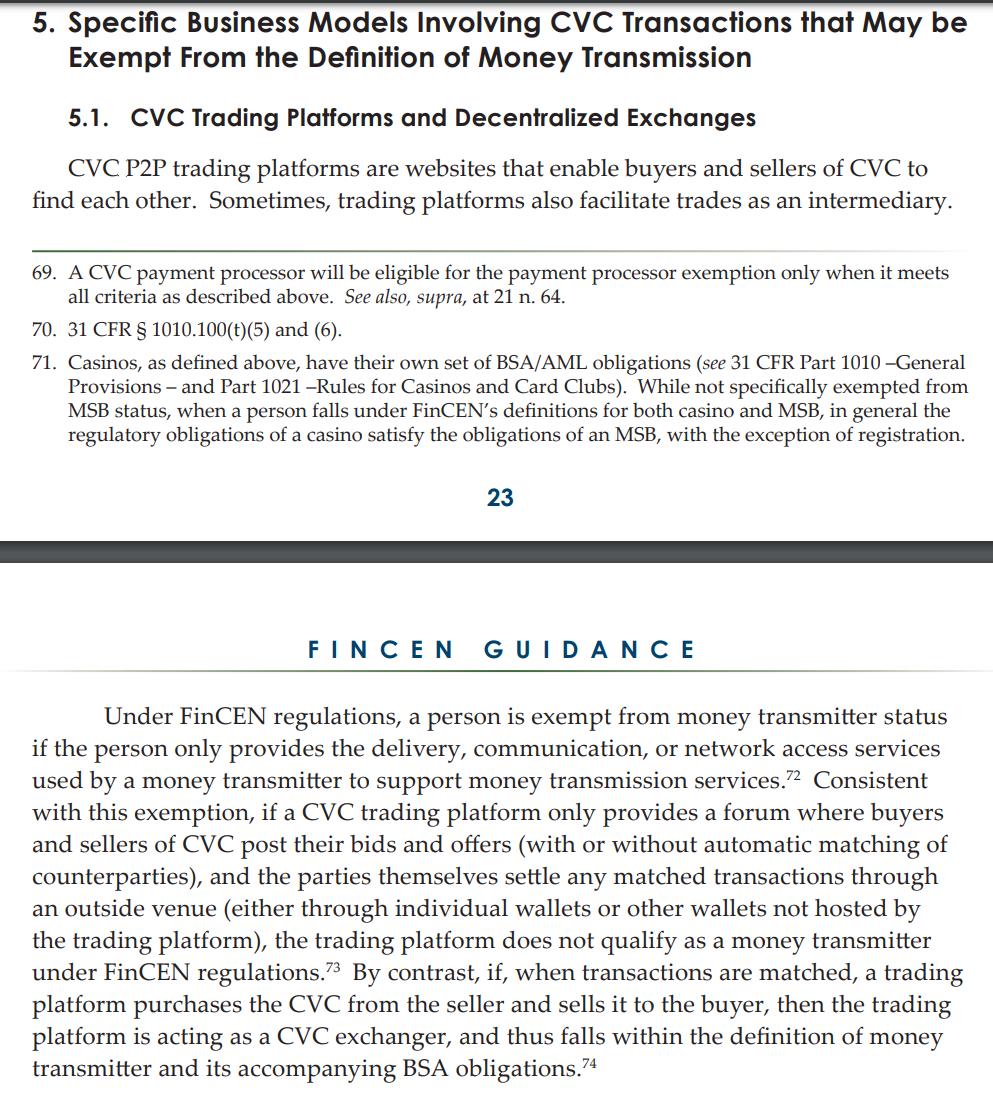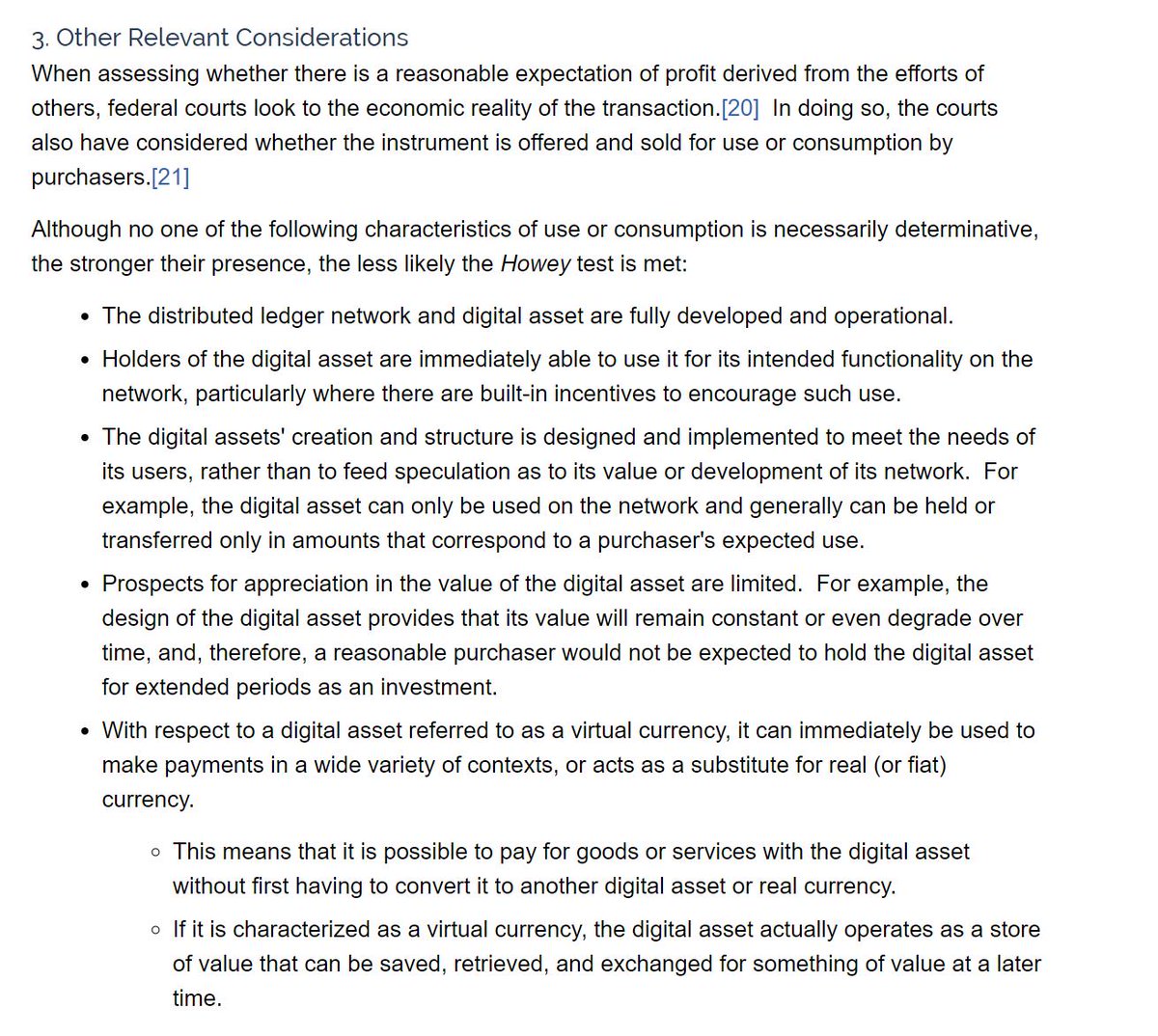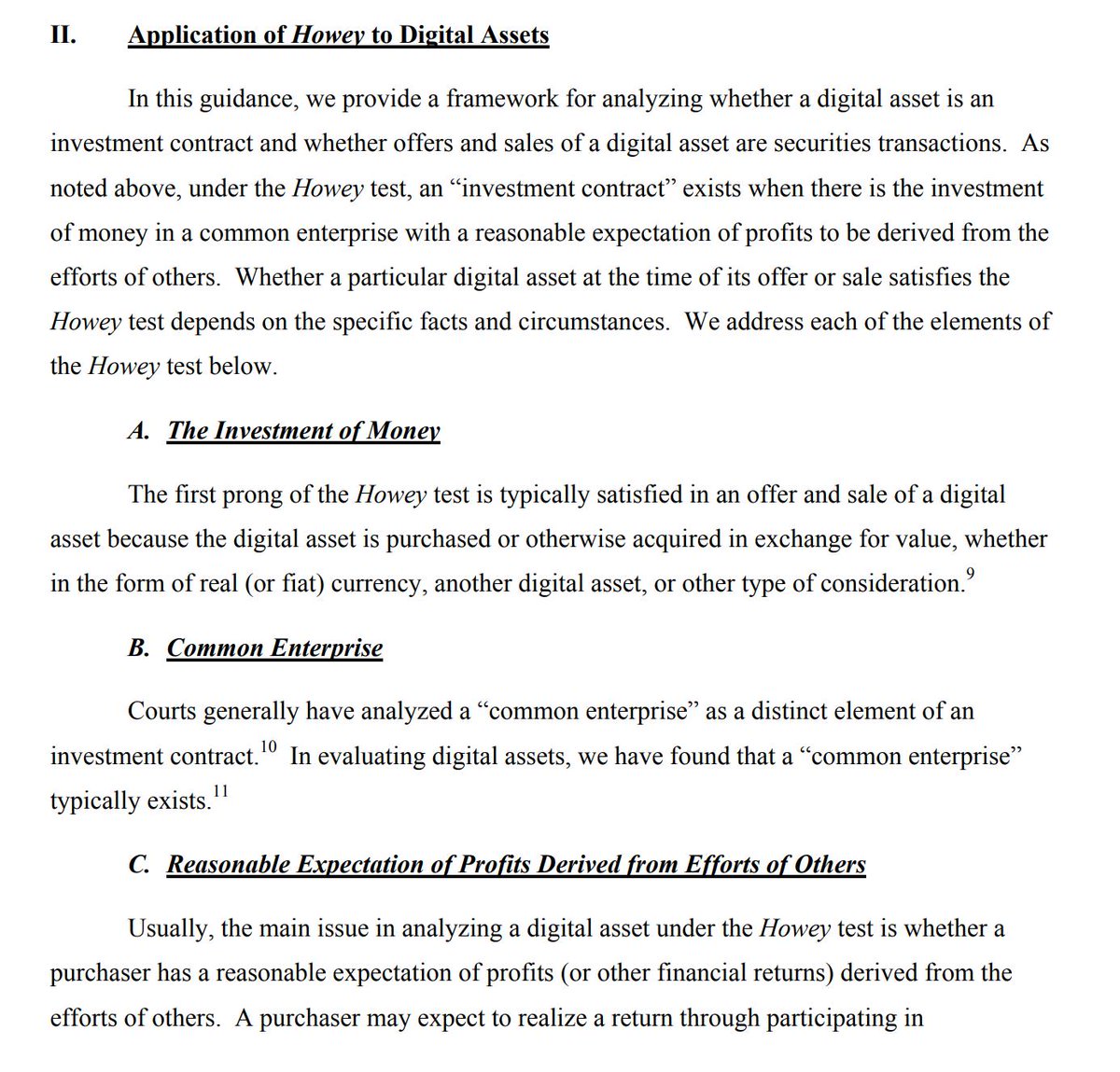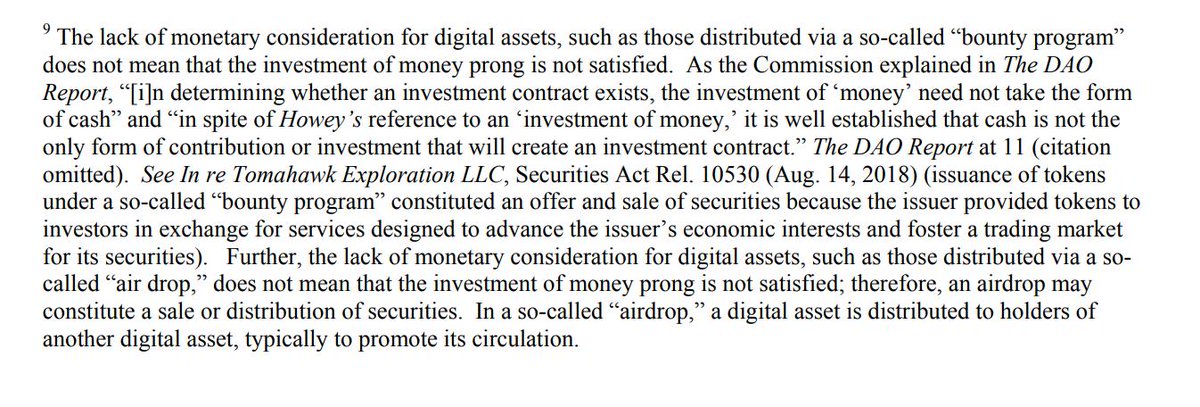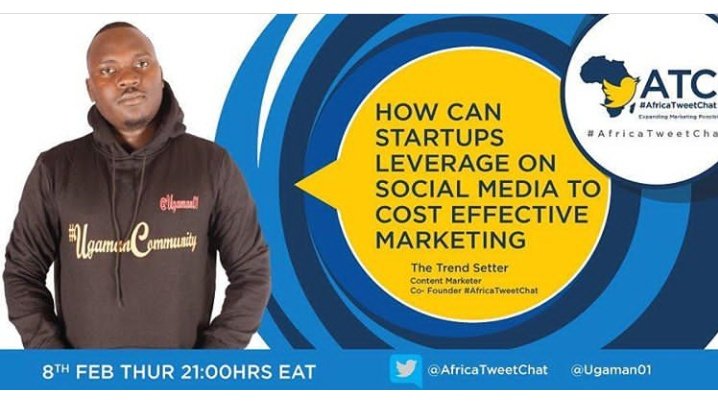2 consolidates & explains current FinCEN regulations, previous
administrative rulings, & guidance involving the regulation of money transmission under the BSA. 3. summarizes FinCEN’s 2013 guidance
emerging business models using patterns of activity involving CVC.
6 -a list of resources to which interested parties may refer
for further explanation about the content of the guidance
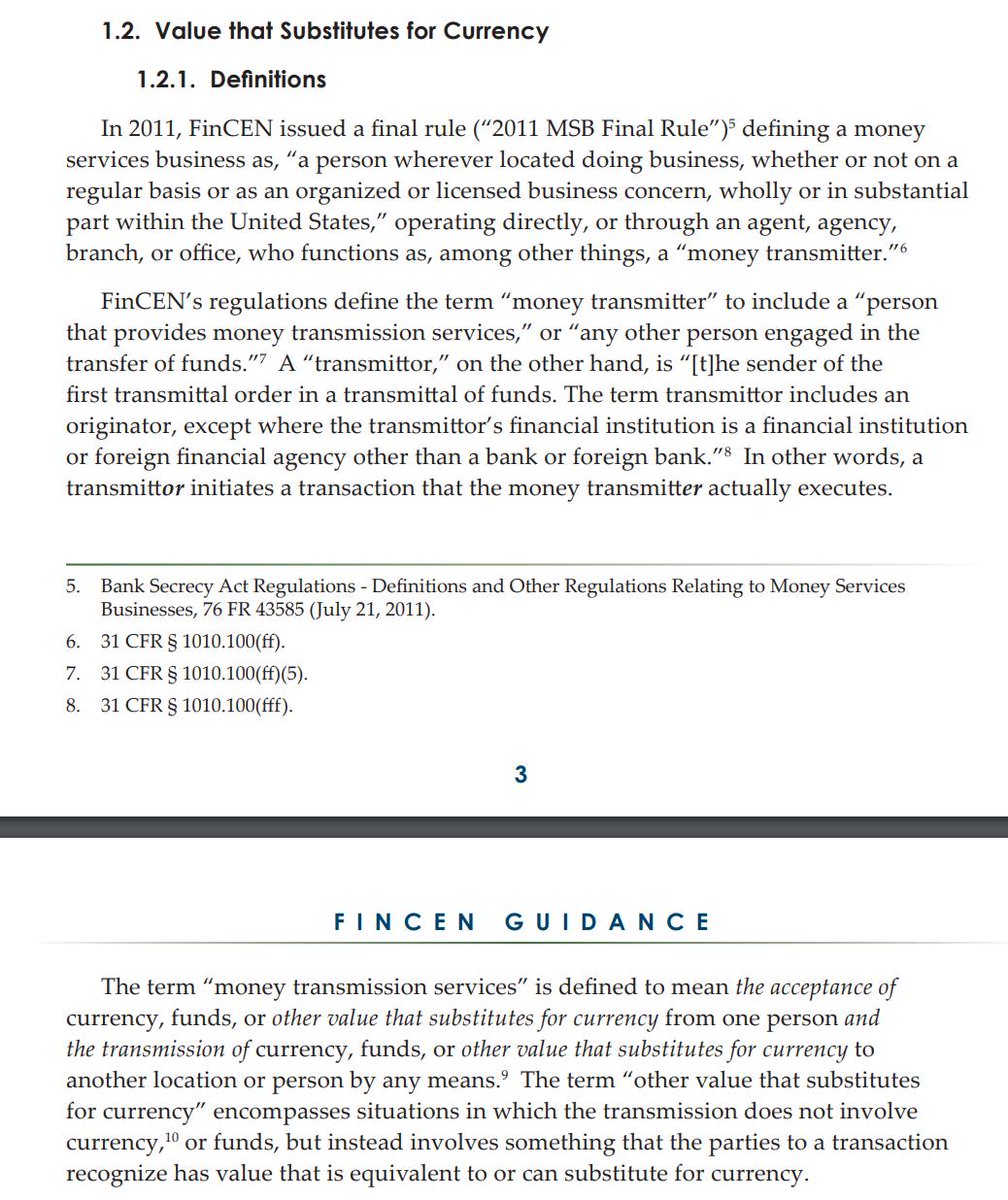
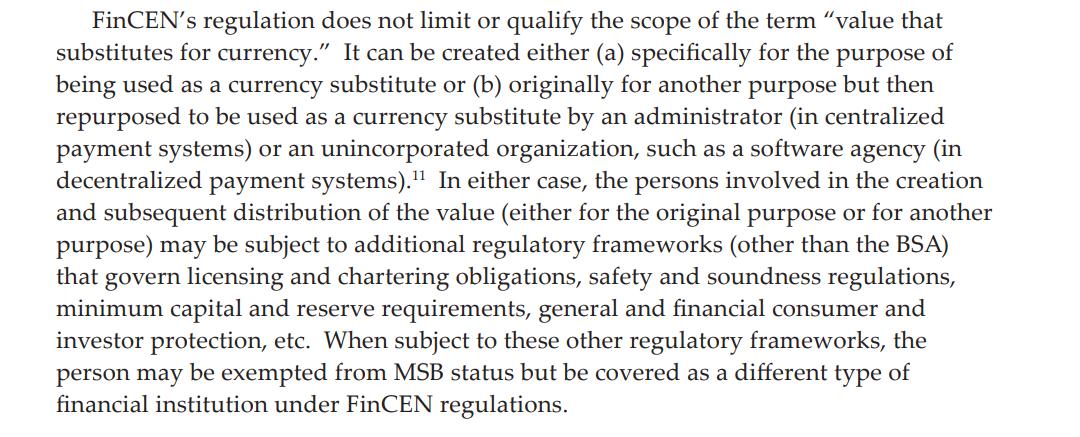
activities include receiving one form of value from one person and transmitting either the same or a different form of value to another person or location, by any means... "in either order." This should concern #Lightning
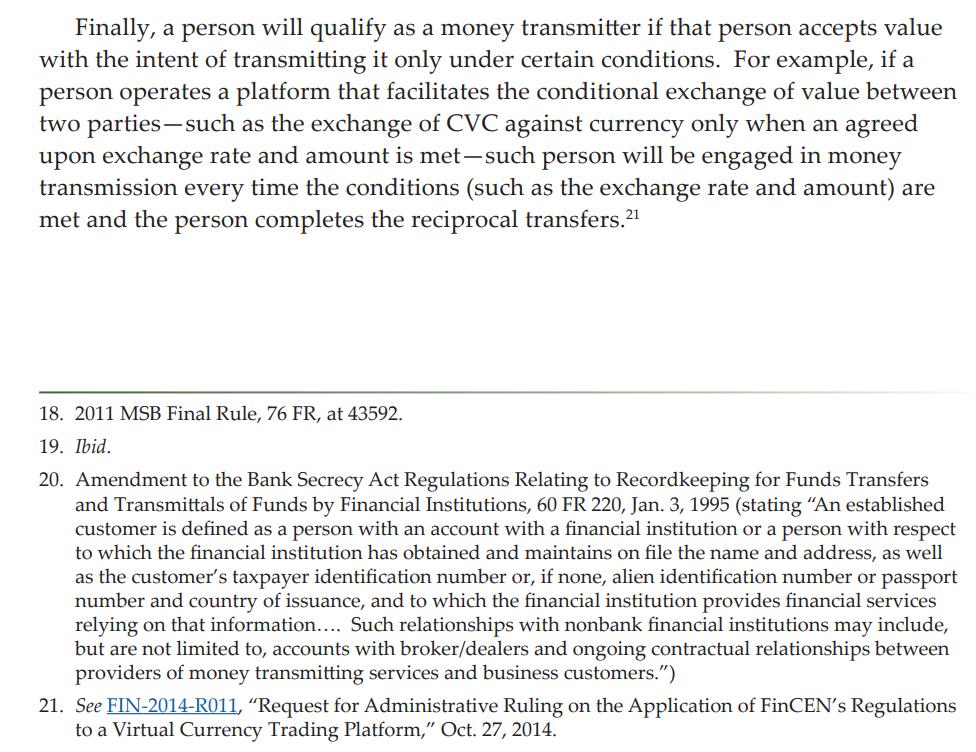
requirements of the BSA, & structured to be risk-based.
MSBs should assess their individual exposure based on customer base, geographies served, & the financial products and services offered.
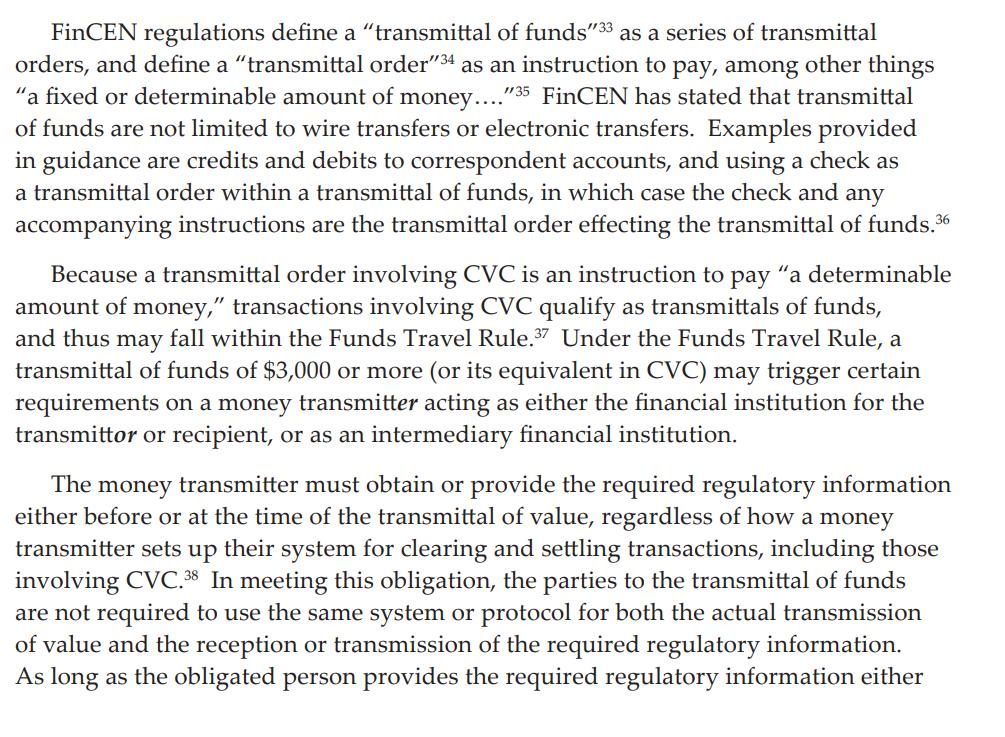
does not interact with the payment system directly, or the provider maintains
total independent control of the value, the provider will also qualify as a MT, regardless of the label"
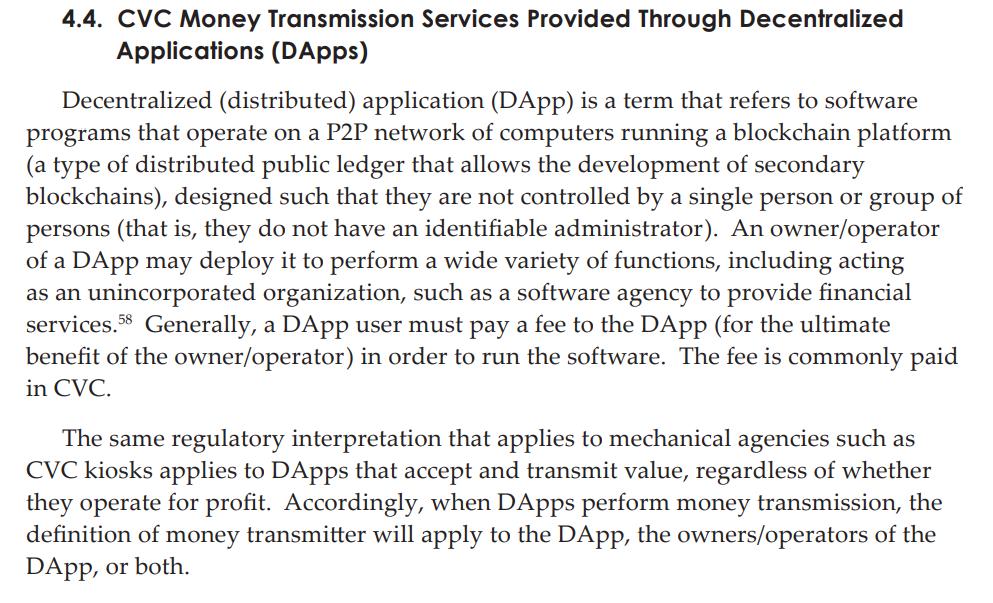
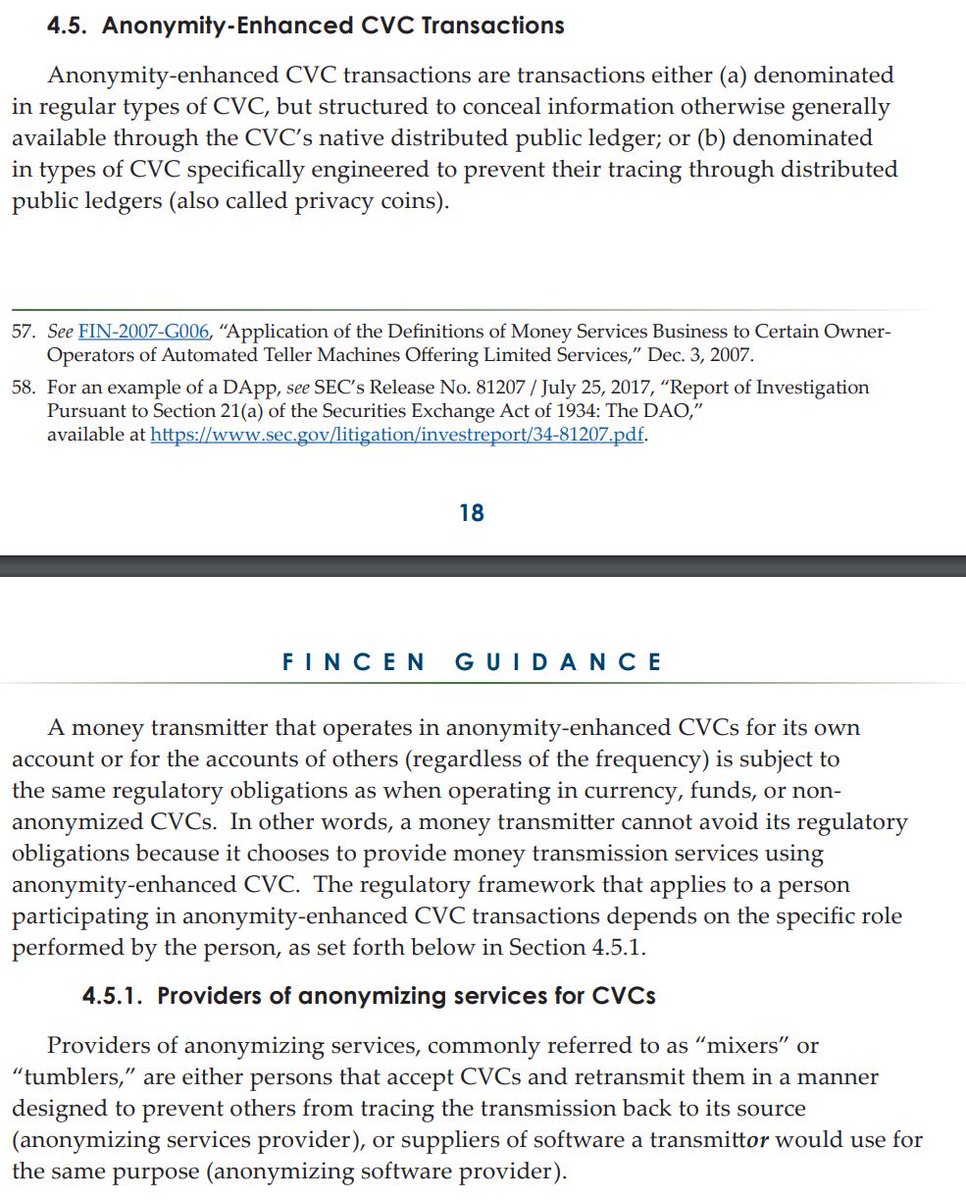
on his own behalf would not be a MT. However, if the person uses the CVC to accept &transmit value from one person to another person or location, the person will fall under the definition of MT, if not exempted.
MT if that person also engages as a business in the acceptance
& transmission of value denominated in the CVC it developed (even if the
CVC value was mined at an earlier date).
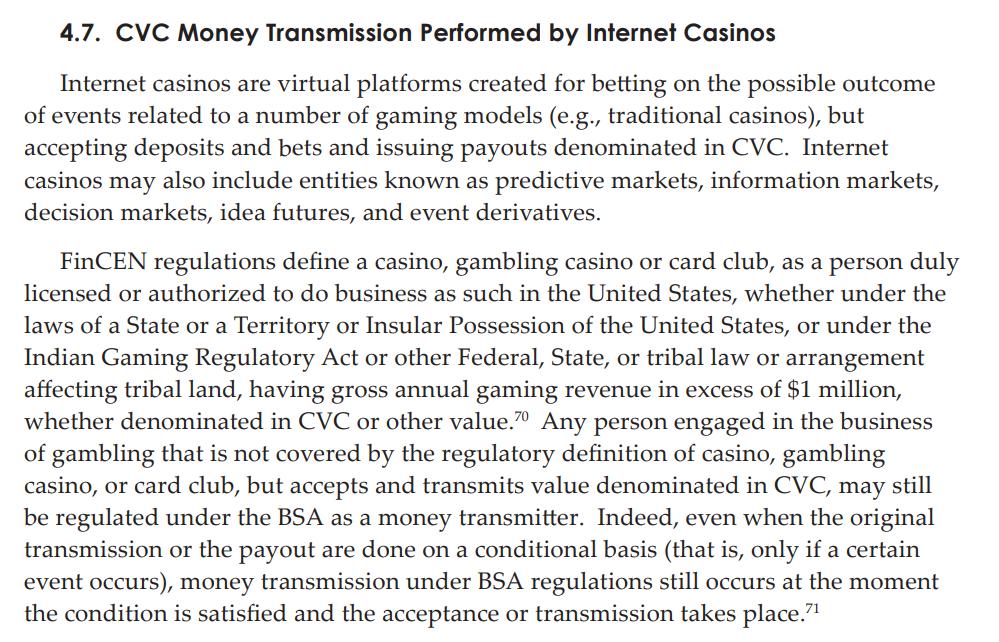
/sellers of CVC post their bids /offers (with /without automatic matching of
counterparties), & the parties themselves settle any matched transactions through an outside venue
the trading platform), the trading platform does not qualify as a MT under FinCEN regulations. By contrast, if, the trading platform purchases the CVC from the seller & sells it to the buyer,
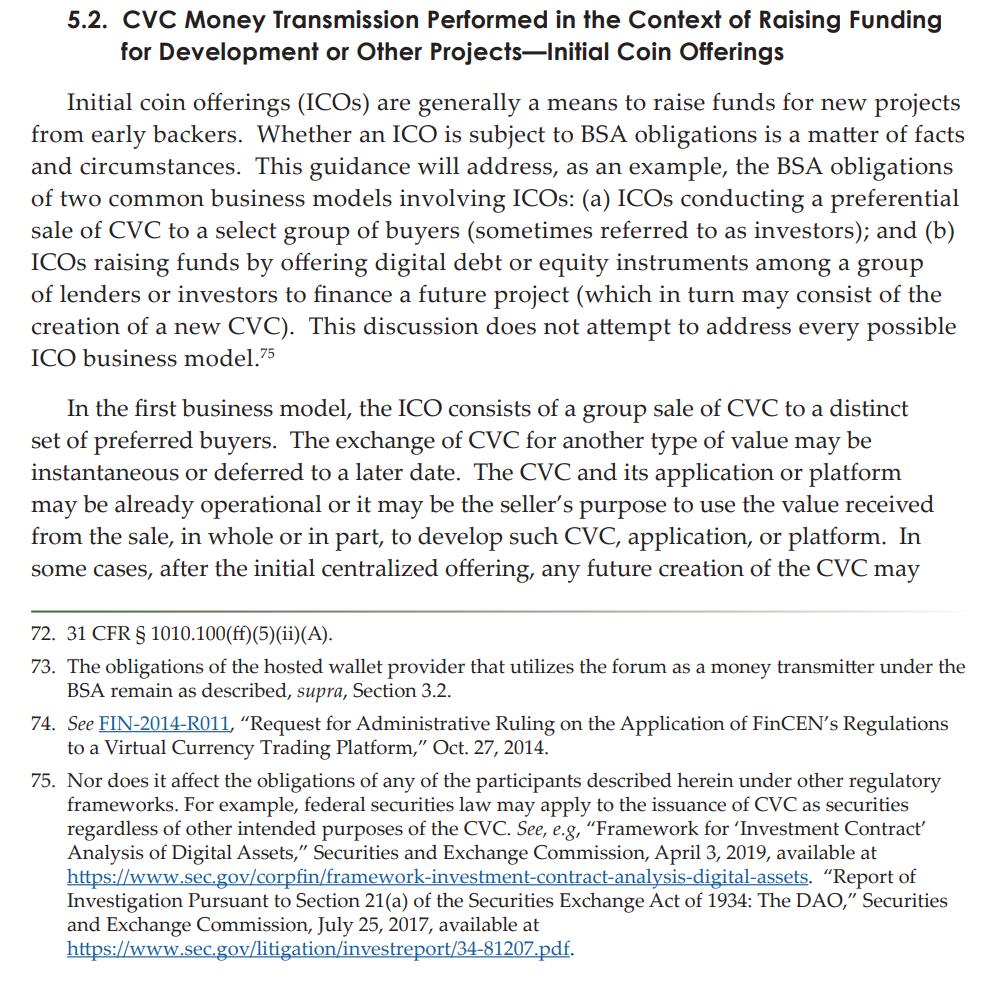
new CVC in exchange for the token;
under FinCEN regulations.
goods or services different from money transmission.
act of creating the application") is not MT, but using a Dapp that does MT is MT.
